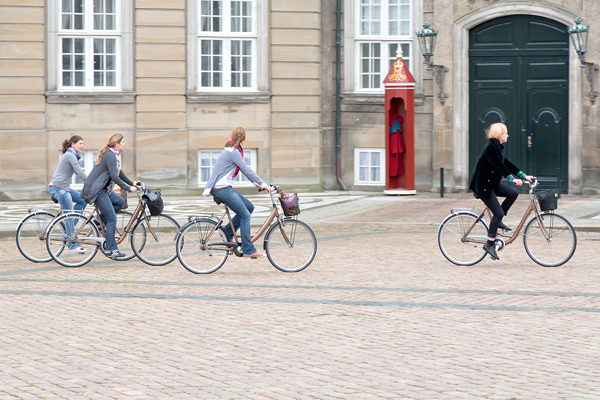Guide to Residency in Denmark
Summary: Looking for guidance on obtaining residency in Denmark? Discover the steps involved and read advice from expats, nomads, and others already in Denmark.

Obtaining a residency visa in Denmark is not always easy, but our Guide to Residency in Denmark gives newcomers an overview of the steps involved and advice from others who have already navigated the process.
- Research the types of Danish residency permits
- Visit the official website of the Danish Immigration Service and New to Denmark (nyidanmark.dk) to understand different types of residency permits: New to Denmark.
- Choose the category that fits your situation (work, study, family reunification, etc.).
- Prepare the necessary documentation
- Gather personal identification documents (passport, birth certificate).
- Obtain any special documents related to your residency category (job contract, university admission letter, marriage certificate, etc.).
- Ensure that all documents are in English or translated to Danish by a certified translator if necessary.
- Apply for a residency permit
- Complete the relevant application form available on the New to Denmark website.
- Pay the application fee, if required, which can be found on the payment portal: Payment Portal.
- Submit your application online or at the Danish embassy/consulate in your home country.
- Wait for the decision
- Processing times can vary, so check the expected time frames on the New to Denmark website.
- Be available to provide additional information or attend an interview if requested.
- Register with the Danish Civil Registration System (CPR)
- Once you arrive in Denmark, you must register with the local municipality (kommune) to get a CPR number.
- Visit the International Citizen Service (ICS) website for guidance: International Citizen Service.
- Bring your passport, residence permit, and proof of address in Denmark.
- Apply for a Tax Number and a tax card
- Visit the Danish Tax Agency (Skattestyrelsen) website: Danish Tax Agency.
- Fill out the tax registration form (04.063) which can be found on their website.
- Submit the form along with your residence permit and CPR number.
- Open a Danish bank account
- Choose a bank in Denmark and inquire about the requirements for opening an account as a foreigner.
- Typically, you will need your CPR number, a photo ID, and proof of address in Denmark.
- Some banks may require additional documentation, such as a work contract or student enrollment confirmation.
- Enroll in the Danish health insurance system
- Once you have your CPR number, you are automatically covered by the Danish health insurance system.
- Choose a general practitioner (GP) through your municipality's website or local citizen service center.
- You will receive a health insurance card (yellow card) which also serves as proof of your CPR number and address.
- Learn the Danish language
- Take advantage of free Danish language courses offered to new residents.
- Contact your local municipality or visit the ICS for information on language schools and courses.
- Understand your rights and obligations
- Read about your rights as a resident in Denmark, including work conditions, taxation, and social services.
- Also, familiarize yourself with your obligations, such as tax reporting and respecting Danish laws.
- Information can be found on the New to Denmark website or through local citizen service centers.
What tips do expats have about residency and visas in Denmark?
"In order to visit Denmark, foreign nationals must obtain a visa prior to their arrival. The process of applying for a visa involves submitting an application form, providing a valid passport, and providing proof of sufficient funds to cover the duration of the stay. Additionally, applicants may be required to provide proof of accommodation, a return ticket, and a valid health insurance policy. In order to obtain residency in Denmark, foreign nationals must apply for a residence permit. The process of applying for a residence permit involves submitting an application form, providing a valid passport, and providing proof of sufficient funds to cover the duration of the stay. Additionally, applicants may be required to provide proof of accommodation, a valid health insurance policy, and evidence of employment or study in Denmark," commented one member living in Denmark.
About the Author
 Betsy Burlingame is the Founder and President of Expat Exchange and is one of the Founders of Digital Nomad Exchange. She launched Expat Exchange in 1997 as her Master's thesis project at NYU. Prior to Expat Exchange, Betsy worked at AT&T in International
and Mass Market Marketing. She graduated from Ohio Wesleyan University
with a BA in International Business and German.
Betsy Burlingame is the Founder and President of Expat Exchange and is one of the Founders of Digital Nomad Exchange. She launched Expat Exchange in 1997 as her Master's thesis project at NYU. Prior to Expat Exchange, Betsy worked at AT&T in International
and Mass Market Marketing. She graduated from Ohio Wesleyan University
with a BA in International Business and German.
Some of Betsy's articles include 12 Best Places to Live in Portugal, 7 Best Places to Live in Panama and 12 Things to Know Before Moving to the Dominican Republic. Betsy loves to travel and spend time with her family. Connect with Betsy on LinkedIn.
Additional Information:
- Denmark Guide
- Healthcare & Health Insurance in Denmark
- Members Talk about Healthcare & Health Insurance in Denmark
- Best Places to Live in Denmark
- Real Estate in Denmark
- Guide to Real Estate in Denmark
- Pros & Cons of Living in Denmark
- Cost of Living in Denmark
- Do I need Health Insurance When Moving to Denmark?
- Having a Baby in Denmark
- Health Insurance for Expats in Denmark
- Best Places to Visit in Denmark for Christmas Cheer
- 2025 Guide to Living in Denmark
- Pros and Cons of Living in Denmark 2025




